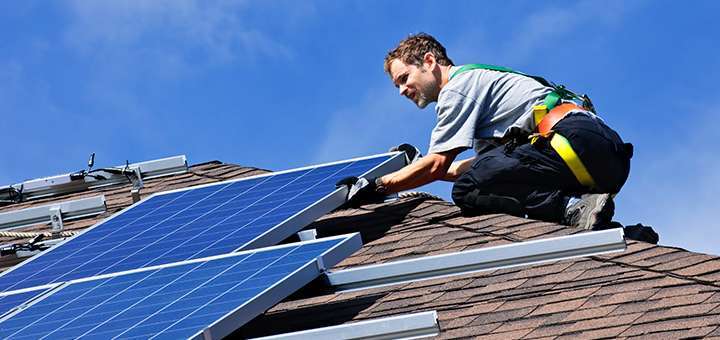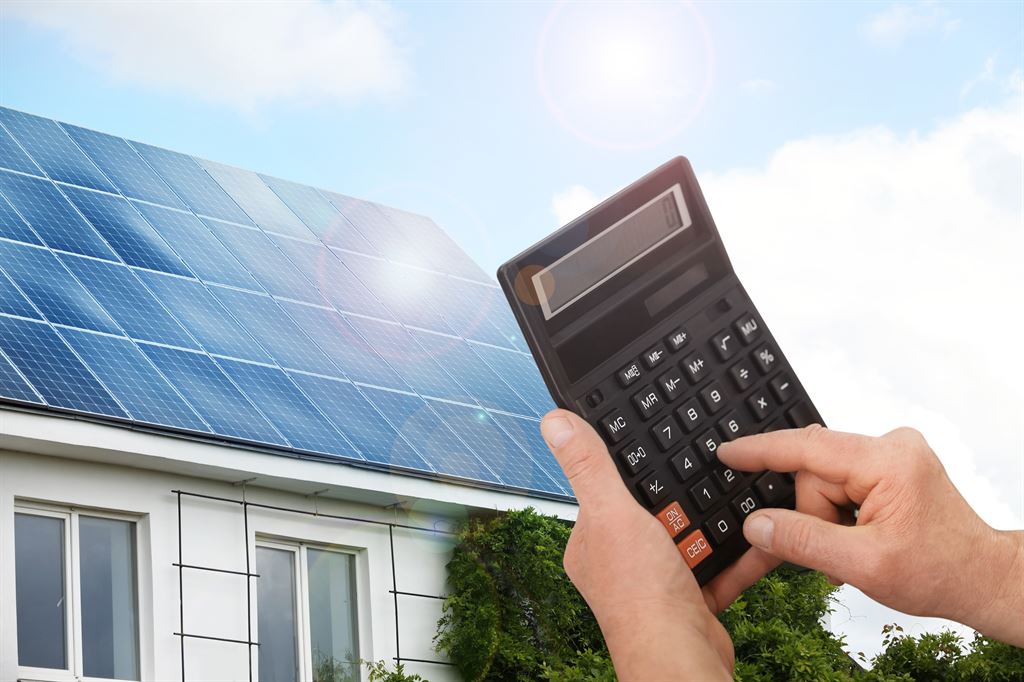Latest News
- IMF And World Bank Align On Kuwait's Economic Growth
- Nepalese Domestic Worker Commits Suicide
- Traffic Light Labeling For Packaged Foods Unveil By Kuwait
- Nazaha Unveils 49 Forged Certificates In 5 Years
- One Injured And Two Killed In An Abdali Road Accident
- Finance Ministry Approves ‘Afiya 4’ Health Insurance Tender With...
- KOC Clinches 63 Rig Contracts Worth $670 Million
- MoE Approves 169 Committees To Test 40,000 High School Students...
- Municipality Launches Campaign Against Unauthorized Car Awnings...
- Civil Service Commission Observes 170 Violations Across Ten Gove...
- Ministry Of Trade And Industry Cracks Down On Grill Pan Weight T...
- Ministry Of Health Considers Fingerprint System For Primary Heal...
4 Things To Consider Before Installing Solar Panels At Home

Solar energy continues to grow in popularity. It’s abundant, clean, helps you save money, and is environmentally friendly. As more homes now feature shiny solar panels on their rooftops, there’s no doubt that solar energy is indeed the future.
So, if you’re thinking of making the switch, there are several factors you should consider to ensure that it’s a sound investment for your family. Here are some important things you need to consider before going solar.
1.Location
Perhaps the biggest factor you need to consider before installing solar panels at home is knowing how much sunlight you can get. Since solar energy systems rely on the sun’s power to produce energy, you want to ensure that your home gets plenty of sunlight to ensure their efficiency.
Solar panels do work well in most climates. You don’t have to live in a sunny or tropical area to make solar panels work for you. However, it’s more effective in some areas. In the U.S., for instance, western, southwestern, and southeastern states get optimum sunshine, particularly those in the coastal or desert regions.
Meanwhile, solar panels make a good investment if you live in Colorado. And if you’re currently looking for one of the most reputable solar companies Colorado has to offer, check out BEX Solar. They offer a variety of solar panels to choose from and provide quality installations from their licensed solar installers.

2.Roof
Traditionally, residential solar panels are installed on your roof. Therefore, you want to determine if your roof can accommodate a solar installation. Nevertheless, there are several things you should consider:
a. Orientation And Tilt
The right roof direction allows solar panels to capture optimum solar energy. The best direction would be a south-facing roof. However, both east- and west-facing roofs should also be good enough. Meanwhile, you have the option to install more panels to capture enough solar power for your home’s electricity needs.
In addition to direction, you also want to consider the pitch of your roof or how it’s slanted towards the sun. The ideal angle should be 30-degree, depending on your location’s latitude. However, you shouldn’t worry much about it since your solar installer can always install brackets to tilt the panels, making them suitable even for flat roofs.
b. Shade
If your home is surrounded by neighboring tall buildings, trees, and other obstacles that cast a shade on your roof, then your solar panels may not get enough sunlight throughout the day.
c. Condition
If your roof is reaching its lifespan or you see obvious damage, then you’ll have to replace it or repair your roof first before installing solar panels. The roof won’t be able to support the extra weight and strain. It might also reach the end of its lifespan faster. It can be a safety hazard when your roof suddenly collapses due to the added weight.

3.Solar Panel Types
As solar energy becomes more popular, solar panel designs also evolve. Today, there are various types of solar panels available. The type of solar panel you choose will depend on numerous factors, including performance, purpose, and durability. So, do your homework before making a decision.
There are only two types you should look for:
a. Photovoltaic Solar Panels
This is the most common type of residential solar panel available. It utilizes solar cells to capture and convert solar energy into electricity. As the oldest technology of solar panels, photovoltaic panels are more versatile and long-lasting.
b. Solar Thermal Panels
A solar thermal panel utilizes a mirror to capture and concentrate solar energy and is often used for water heating. This makes it more efficient than photovoltaic solar panels.
4.Cost
While solar panels can help you save money on utility bills, the panels and installation can be costly. A simple Google search can give you a rough estimate of the different pricing for solar panels in your location. Nevertheless, since solar panels are an expensive investment, you want to consider if you can pay it out of pocket or if you’ll need to finance your purchase.
Fortunately, most government institutions offer subsidies and schemes to help people switch to solar energy. Depending on your location, you can ask your local government if they offer tax rebates and incentives for your sustainable project and whether or not you’re eligible.
Takeaway
Solar energy is an excellent investment that’ll provide you with numerous benefits in the long run. However, installing solar panels at your home isn’t as straightforward as you think. You need to consider many things, from your location to the cost that comes with it. So, make sure to consider the factors mentioned above to make the switch to solar worth it!
Trending News
-
 Eid Al Fitr 2024: Crescent Moon Not Sighted In Sau...
08 April 2024
Eid Al Fitr 2024: Crescent Moon Not Sighted In Sau...
08 April 2024 -
 Kuwait Implements Home Biometrics Services Ahead O...
14 April 2024
Kuwait Implements Home Biometrics Services Ahead O...
14 April 2024 -
 When Will Eid Al Fitr 2024 Take Place In Qatar, Ba...
08 April 2024
When Will Eid Al Fitr 2024 Take Place In Qatar, Ba...
08 April 2024 -
 On Sunday, The Meteorological Department Warns Of...
07 April 2024
On Sunday, The Meteorological Department Warns Of...
07 April 2024 -
 Kuwait Airways Provides Update On Flight Schedule...
14 April 2024
Kuwait Airways Provides Update On Flight Schedule...
14 April 2024 -
 Winners Of Kuwait National Assembly 2024 Elections
06 April 2024
Winners Of Kuwait National Assembly 2024 Elections
06 April 2024 -
 Kuwait Airways Introduces Convenient Home Luggage...
15 April 2024
Kuwait Airways Introduces Convenient Home Luggage...
15 April 2024 -
 Gathering For Eid Al-Fitr Prayers: Kuwaiti Citizen...
10 April 2024
Gathering For Eid Al-Fitr Prayers: Kuwaiti Citizen...
10 April 2024 -
 Transforming Kuwait's Public Transport: The Digita...
07 April 2024
Transforming Kuwait's Public Transport: The Digita...
07 April 2024 -
 An Egyptian Expat Dies At Kuwait's Airport
11 April 2024
An Egyptian Expat Dies At Kuwait's Airport
11 April 2024












Comments Post Comment